Foreign Trade and Transport in Angola, Luanda, Lobito
Angola (Business) Luanda, Benguela, Huambo, Cabinda, Kuito, oil

Angola is a Central African Country (Repubilika ya Ngola in Kikongo)
- Luanda is the political, economic and administrative capital of Angola
- Other Angolan largest cities are Huambo, Benguela, Lobito, Kuito, Lubango, Malange, Namibe, Soyo, Cabinda and Lucapa
- 70% of Angolans live with less than two dollars a day
- The main Angolan economic activities are mining sector, agriculture, industries,
tourism,
logistics and building
- Angola is the fourth largest coffee producer in the world
- Significant sugar, beer, cement and wood production, as well as oil refining.
- Angola has important petroleum, mining (diamonds, oil, uranium,
iron) and forest resources
- Angolan oil: 60% of the Angolan GDP
- Cabinda: 65% of the Angolan Oil
- Sonangol: control of the Angolan oil industry
- National Company of Diamonds of Angola
- Angola is the second largest African oil exporter (after Nigeria)
- Uranium deposits near the border with Namibia.
- Transparency International considers to Angola as one of the most corrupt countries in the world
- Angola is an African Frontier Market
- Angola share borders with Namibia (1,376 kilometres), the DR Congo (2,511 kilometres), the Republic of the Congo (201 kilometres, Cabinda, Moanda Corridor, Congo River mouth, to 50 kilometres of Dolisie) and Zambia (1,110 kilometres)
 Angola
Angola


More information: International Trade and Business in Angola, at EENI Global Business School Website.
Isabel dos Santos the richest African Businesswomen
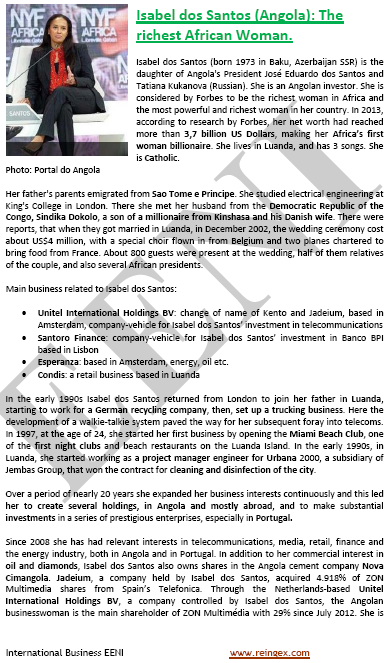
Logistics and Transportation in Angola
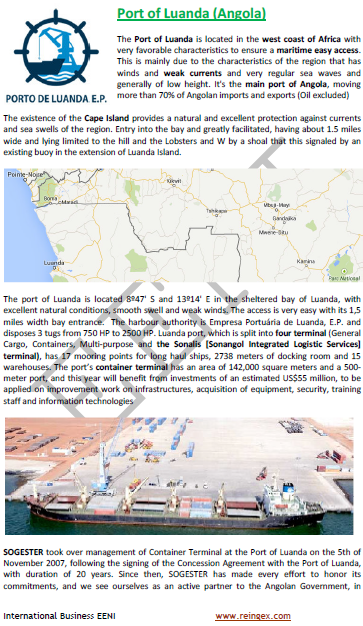
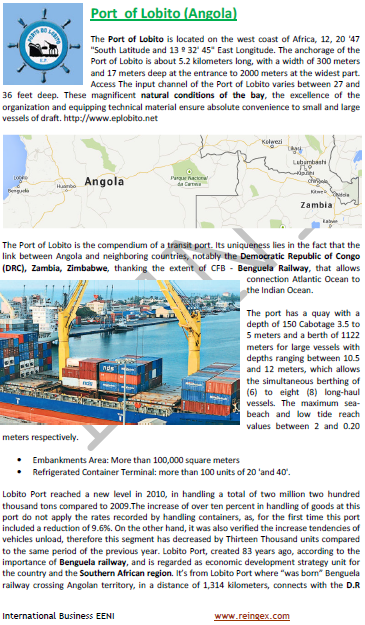
Beira-Lobito Transport Corridor
- Angolan population: 29 million Angolan
- 1940: 3 million
- 1970: 5.6 million
- 2014: 24 million
- 2060 (estimations): 47 million
- Angolan Population density: 24 inhabitants/km²
- Angola is a Presidential Republic
- Area of Angola: 1,246,700 km²
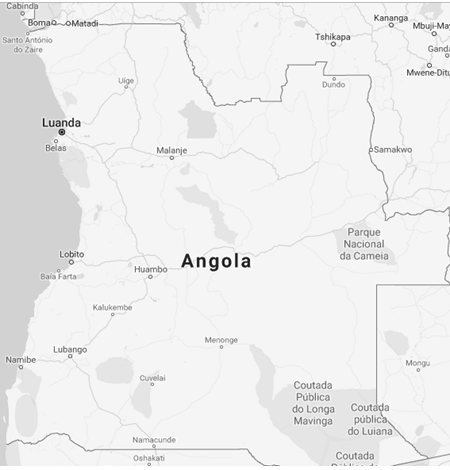
- Angola obtained its Independence from Portugal in 1975
- The name Angola is derived from the Bantu term N'gola, the title of the kings of the Kingdom of Ndongo, which existed when the Portuguese settled in Luanda in the 16th century.
- Calling code: 244
- Angolan code top-level domain: .ao
- Currency of Angola: Kwanza (AOA)
- 2002: end of the civil war (27 years)
- Atlantic Coast: 1,600 kilometres
- Climate of Angola: tropical
- History of Angola
The provinces of Angola are (province/capital):
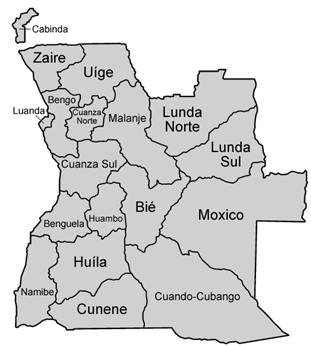
- Bengo/Caxito
- Benguela/Benguela
- Bié/Cuíto
- Cabinda/Cabinda
- Cuando Cubango/Menongue
- Cunene/Ondjiva
- Huambo/Huambo
- Huíla/Lubango
- Kwanza North/N'dalatando
- Kwanza Sul/Sumbe
- Luanda/Luanda
- Lunda North/Dundo
- Lunda Sul/Saurimo
- Malanje/Malanje
- Moxico/Luena
- Namibe/Namibe
- Uíge/Uíge
- Zaire/M'Banza Kongo

Trade and Business Organisations (Angola)
- Economic Community of Central African States (CEEAC)
- Southern African Development Community (SADC)
- COMESA-EAC-SADC Tripartite Free Trade Agreement
- Conference on the Great Lakes Region
- Great Lakes Region
- Community of Portuguese Language Countries
- Organisation of the Petroleum Exporting Countries (OPEC)
- African Union
- AUDA-NEPAD
- Economic Commission for Africa
- African Development Bank
The main Angolan ethnicities are:
- Ovimbundu
- The main Angolan socio-cultural group
- 37% of the Angolan population
- In Southern-centre of Angola (Central Plateau), on the coastal strip west of the Central Plateau (Huambo, Bié and Benguela provinces)
- Ambundu
- 25% of the population
- Central North region (main provinces: Luanda, Malanje, Kwanza-Sul and Kwanza-North).
- Kimbundu language
- Bakongo (13%)
- Kikongo is the language of Bakongo
- In the North, in the provinces of Uíge, in Zaire and Kwanza-North, most of Bakongo

Religions and Global Business -
Religious diversity
Religions in the Republic of Angola:
- Christianity (Catholicism) (95% of the Angolan population)
- African Traditional Religions
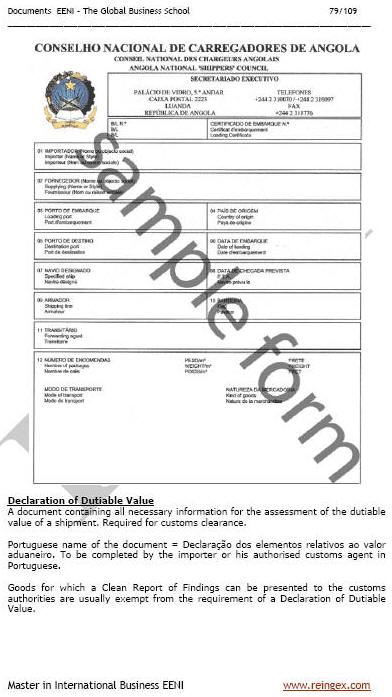
Languages of Angola
The official language of Angola is Portuguese (71% of the Angolan)
Other Bantu languages with the status of national language are:
- Umbundu (23% of the Angolan, is the second most spoken language in Angola with 5.9 million people)
- Kikongo (8%)
- Kimbundu/Quimbundo (8%)
- Tchokwé/Tshócue (7%)
- Nganguela/Ganguela (3%)
- Kwanyama/Cuanhama (2%)
Higher Education in Angola
- University Agostinho Neto (Luanda)
- Catholic University of Angola (Luanda)
- University Jean Piaget of Angola (Luanda, Portugal)
- Lusophone University of Angola (Luanda, Portugal)
- Lusíada University of Angola (Luanda, Portugal)
- School of Business of Angola (Luanda, Portugal)
- Private University of Angola (Luanda, Lubango)
- Methodist University of Angola (Luanda)
- University of Katyavala Bwila (Benguela)
- University November 11th (Cabinda)
- University José Eduardo dos Santos (Huambo)
- University of Mandume and Ndemufayo (Lubango)
- University Lueij A'Nkonda (Malanje)


 Tweet
Tweet


